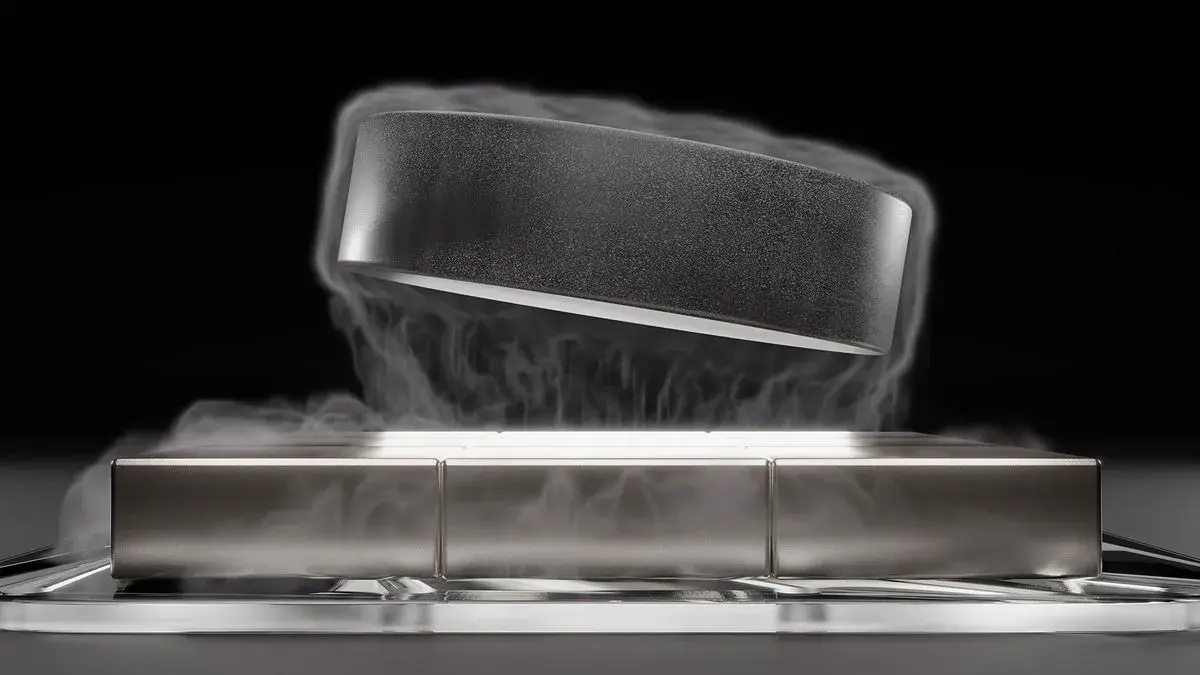Big if true
How big kinda depends…
The two limits on superconductor performance are:
- How much current it can carry
- How much magnetic field it can withstand
It will soon go to National Labs to establish those parameters
Even if it’s useless it’s a massive step forwards in superconductor development
I guess you could say that even if it has low electric and magnetic capacity it still will have a giant impact on industry. But not all industries.
From what I understand, even if the current and magnetic field of this superconductor are low, it has:
- Identified a process for creating new superconductive materials
- Proven that ambient temperature and pressure superconductors are possible
- The original finding was written by experienced chemists, not physicists. There are some problems where solutions are searched for in the wrong directions.
- Our current generation of YCBO-based high-temperature superconductors started out as low-field, low-current, highly strain-sensitive, and over 30+ years of engineering development, these now carry >1000 amps/mm^2 in fields as high as 10T (although these numbers trade off against each other). It’s a matter of time.
How big kinda depends…
The two limits on superconductor performance are:
- How much current it can carry
- How much magnetic field it can withstand
It will soon go to National Labs to establish those parameters
So would this mean that cpus would not generate heat?
Would smartphone battery life skyrocket?
Can someone breakdown how this would affect computing?
According to the article fabrication seems to have a very low yield. That will generally make it difficult for consumer products.
I would generally assume first use would be in locations were super conductors are already used today. E. g. in MRI machines which would then not require cooling anymore and therefore could be more compact, quieter and consuming much less energy.
Other prime fields for super conductors are energy transportation from the energy producers to the consumers.
Application in electronics seems difficult for me as the material is not used stand alone there and therefore new fabrication processes and designs will be needed. After all it will not work to use this material to replace silicon transistors as our transistor designs are relying on the semiconductor nature of silicone and a superconductor cannot follow this by definition. Maybe the connections between transistors can be replaced, but I am not sure where most of the heat generation happens. If I remember my physics studies correctly there is also significant energy loss within the transistor and that would still mean that the cpu would heat up. This would be now especially critical as the temperature must not exceed the temperature where the material loses super conductivity as this would most likely lead to a fast melt down of the device.
Assuming it’s real, the material takes about as much current as a wet noodle. So no giant magnets for you. Maybe some low-current application like sensors? (SQUID etc.)
Don’t the current quantum computers also rely on superconducting materials that need to be kept sort cold?
My understanding is that they also need low thermal noise to ensure pure states. They cool much below the superconduction threshold temperature (eg typically 20 mK). So I am not sure that this would be useful for quantum computers at the moment. Magnetic field productions such as that in MRI requires high current, so that depends on the maximum current that this material can sustain before that breaks superconductivity. So it could perhaps turn out useful or totally useless. Hard to say at the moment.
“So it could perhaps turn out useful or totally useless.”
That’s a realistic statement. Although the MRI thing sounds cool as well. I recall last year a big grant for a big 14T mRI project was awarded in the Netherlands, I wonder if this thing will make them reevaluate their plans. Before this becomes viable in such a setting I can imagine a lot more is needed, but it would be such a typical thing that they finish building a 14T MRI and then “hey guys we just finished this superconductor pipeline and stuff is much easier/better now!”
I highly doubt they will switch plans. This current solution seems far from any real productive use.
Compare to the battery industry which has frequent announcements of new solid state or natrium batteries, but there is still much investment in “old” lithium ion batteries since they are proven to be productive and they are also approved to be used in products.
Yeah for sure, it’s prolly a while until it’s developed into something feasible.
A superconductor would completely change how we handle electricity. It’s like a cheat code almost. I’d say most of our current electric infrastructure only exists because of the limitations of our non-superconducting materials.
Keep in mind that superconductors have a critical current below which you have to be if you want to stay in the superconductive states. So for a superconductor to be useful for energy transport, this current has to not be tiny. I haven’t had the time to read their paper so I don’t know the value of the critical current. Also if for some reason the current suddenly goes beyond the critical current, the wire will heat suddenly, with possible damage…
I didn’t know that. Thanks.
And sometimes superconducting materials are wholly impractical – making it superconductive could make it incredibly brittle, etc. Supposedly this new material is an “apatite”, which is a geological term for a kind of crystal. Who knows what properties it has, yet? Supposedly these samples were made and tested by depositing them on to a glass surface.
Assuming that the production, installation, and maintenance of this superconductor is practical. We don’t know yet, this involves lead, are we going to be massively increasing lead mining? Who is going to be doing that? Will there risk of lead exposure and area poisoning if a power line is broken by a shovel?
So would this mean that cpus would not generate heat?
Not quite. Charges undergoing acceleration and state transitions still generate EM radiation, and still lose energy. In a semiconductor, charges start moving, stop moving, and change direction all the time. So that form of energy loss & heat generation will continue.
In addition, the semiconductor itself is still a semiconductor, not a superconductor. To take advantage of the ability of a semiconductor to hold charges in specific states, there will be some heat losses.
But, a practical superconductor could be used to form all the interconnects in a PC board or the surface of a silicon chip device, providing an efficiency improvement.
No, computing (as in general computing) will barely be affected. Computing uses semiconductors, which this (AFAIK) isn’t. Switching losses always occur unless you switch instantly, which is impossible. Most of the heat of cpus comes from there.
Specialized things like quantum computing are a different story.
What this superconductor could mean though: you could have a relatively thin cable from say, the Sahara to Europe, that can losslessly transfer energy. No losses whatsoever. So you can produce energy wherever energy is present, and use it where energy is required!
You can use superconductors to create Josephson junctions, which can be used for standard logic operations (but also useful in quantum computers). These junctions are much more efficient and much faster than transistors.
This particular superconductor will not be useful for transmitting power because the effect breaks down at very low current limits in this material, but it will be very useful for studying superconductors.
So contrary to what you said, this will in fact not be useful for power transmission, but could be useful for CPUs and GPUs, and could lead to computers that are hundreds or thousands of times faster and more efficient than what we have today.
To be fair this material may never see a practical use though.
I was under the impression the major struggle to create a room temperature single electron transistor, were not so much the tunneling junctions, but the quantum dot size and placement, to avoid electrons passing through just because of their thermal energy.
How would this superconductor help in that case? (or am I missing something? this is kind of at the limit of my quantum computing knowledge)
Thanks for the enlightening comment! I see you know way more about this than I do, so, guy who I replied to originally, listen to this guy and not me.
I didn’t go far down into the scientific material concerning this, so it seems I was quite misinformed.
Well, almost no losses. No resistive losses. Should still lose some because of electromagnetic fields surrounding the cabling interacting with the environment.
This superconductor is a ceramic so not ductile at all. It also can only carry very small amps as a super conductor. It’s possible this way of thinking about super conductors will yield better wires, but they wont be made from this exact material.
I can’t speak to the superconducting potions of this comment, but the general computing information is mostly correct.
Switching losses are a result of capacitance in the circuit. These capacitances aren’t going anywhere in transistors made from semiconductors. Additionally, even when a transistor is on it has some resistance, which of course creates heat whenever a current moves through that transistor. Leakage current also generates waste heat.
I could see room temperature super conductors being useful as replacements for bus lines in a digital circuit, but this wouldn’t eliminate the heat in the circuit. Most of the heat is created in the transistor junctions, so the effect would be very minimal if even noticeable.
Still, with good superconductor, desing of the chips will be greatly affected. Not caring about removing the heat from the layers will open huge possibilities
At the moment, Andrew Cole on Twitter seems to be a good person to follow for breakdowns and thoughts: https://nitter.net/Andercot
deleted by creator
This is amazing news
I hope they find a way to scale to production, but given how impactful it could be I’m certain there are a lot of people working like mad to do just that. Currently the only known way to make them is “shake n’ bake” lol.
If this works at all, every material scientist in the world will be working on similar materials and manufacturing processes for them to improve the effect and make them more manufacturable.
I hope so. My fear is after seeing what the fossil fuel industries did to stop alternatives from arising, that they will embark on a new campaign to undermine this for as long as possible.
I think this would be a big enough deal that even they couldn’t stop everyone from trying to use it.
Agreed. Very rarely do scientific discoveries like this leak into the mainstream news cycle, but this one has and so it’ll be very difficult to keep people from losing their shit if any organization tries to suppress it.
The fossil fuel industry opposing superconductors would be like Blockbuster trying to run a campaign to destroy the Internet to preserve their video rental chain. The rest of the world would tell them to sit down and shut up with their piddling little concerns and trivial economic power. Superconductors will be far more important.
This has the potential to be a huge breakthrough!
Still waiting on that 5 sigma.
6 sigma or it didn’t happen babe.















